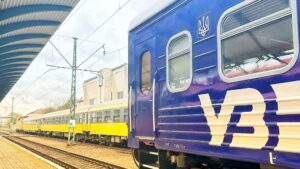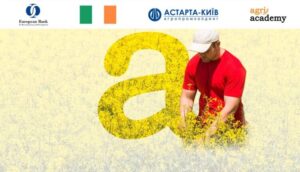
Since 2021, 8,644 agricultural companies have been registered in Ukraine, while 3,416 companies have been closed, according to the Opendatabot service.
According to the resource, agricultural companies were most actively registered in 2021, when 2,678 companies appeared. With the start of the full-scale invasion, the number of registrations dropped to 1,558. However, starting in 2023, the agricultural sector revived: 1,697 new companies appeared in a year. Between January and July 2025, 869 new agricultural enterprises were registered.
Analyzing data on the closure of agricultural enterprises, analysts noted that the largest number of closures occurred in 2021 (1,070 companies) and in 2024 (685). This year, 536 agricultural companies decided to cease operations.
The largest number of new agricultural companies was recorded in the Odesa region — 612. Next are Kyiv (600), Lviv region (597), Vinnytsia (591), and Dnipropetrovsk (535). The fewest were in the frontline regions of Luhansk (40), Donetsk (101), and Zaporizhzhia (147). However, agribusinesses are not very active in Chernivtsi (120) and Zakarpattia (171) regions either.
The largest number of agricultural companies closed in the Odesa region — 606. There were also many closures in the Dnipropetrovsk (225), Khmelnytskyi (201), Kyiv (199), and Mykolaiv (191) regions. The fewest closures were in Luhansk (21), Donetsk (49), Ivano-Frankivsk (49), and Kyiv (55).
Analysts noted that 1,738 agricultural companies relocated to other regions during this period. Of these, 346 agribusinesses moved to western regions of Ukraine over the past five years. Almost half of the relocators who decided to move west chose Lviv region as their new region for doing business — 166 companies. Rivne (54 companies), Volyn (39), Khmelnytskyi (30), and Zakarpattia (19) regions are also popular among businesses changing their registration.
In addition, a number of agricultural companies that have opened during this time are steadily increasing their wealth. The top five newcomers actively expanding their operations include Farmzaat Ukraine, whose revenue grew 3.3 times in 2024 to UAH 770 million; Niva-Plus, which earned 1.5 times more than in 2023, at UAH 530 million; Agroprotekhnika – 2.7 times, to UAH 392 million, Krasnopavlivsky KHP – 1.3 times, to UAH 308 million, and Agrofirma Malynivska – 2.8 times, to UAH 299 million.

More than 8 thousand agricultural companies have been opened in Ukraine since 2021, according to the Unified State Register. The peak occurred a year before the full-scale invasion, when 2678 agribusinesses opened in a year. At the same time, another 3.4 thousand companies ceased operations from 2021 to 2025. Most often, agribusinesses are started in Odesa, Kyiv, and Lviv regions. More than 346 companies relocated to the western regions during this time.
8,644 agricultural companies have been registered in Ukraine since 2021. The most active year was 2021, when 2,678 companies were registered. With the start of the full-scale invasion, the number of registrations dropped to 1,558. However, in 2023, the agricultural sector revived: 1,697 new companies were registered in a year. 869 new agricultural enterprises have already been registered this year.
At the same time, 3,416 agricultural enterprises closed in Ukraine from 2021 to 2025. The largest number of closures occurred in 2021 (1,070 companies) and in 2024 (685). This year, 536 agricultural companies decided to cease their operations.
The largest number of new agricultural companies was recorded in Odesa region – 612. This is followed by Kyiv (600), Lviv region (597), Vinnytsia (591), and Dnipropetrovs’k region (535). The lowest number is in the frontline Luhansk region (40), Donetsk (101), and Zaporizhzhia (147). However, agrarians in Chernivtsi (120) and Zakarpattia (171) regions are not very active in opening their businesses.
Most agricultural companies closed in Odesa region – 606. There are also a lot of closures in Dnipropetrovska (225), Khmelnytska (201), Kyivska (199), and Mykolaivska (191) regions. The lowest number of closures was in Luhansk (21), Donetsk (49), Ivano-Frankivsk (49), and Kyiv (55).
1738 agricultural companies relocated to other regions during this period. Of these, 346 agribusinesses moved to the western regions of Ukraine over the past 5 years. Almost half of the relocators who decided to move to the west chose Lviv region as a new business location – 166 companies. Rivne region (54 companies), Volyn (39), Khmelnytsky (30), and Zakarpattia (19) are also in demand among businesses that change their residence.
Some agricultural companies that have opened during this time are steadily increasing their fortunes.
● Farmzaat Ukraine – in 2024, the company’s revenue grew 3.3 times and reached UAH 770 million
Niva-Plus – last year the company earned UAH 530 million, which is one and a half times more than in 2023.
● Agropromtekhnika – revenue grew 2.7 times year-on-year to UAH 392 million
Krasnopavlivskyi CPP – UAH 308 million, up 1.3 times compared to 2023
● Malynivska Agrofirm – the company’s revenue grew 2.8 times over the year to UAH 299 million
https://opendatabot.ua/analytics/agro-in-war




In response to ticket shortages, Ukrzaliznytsia is rolling out a trial version of the “Dія.Підпис” verification system, which already works for international flights, for five popular domestic trains.
“We continue to use all means to reduce the number of possible abuses when purchasing train tickets. Therefore, from August 1, in order to buy or return tickets for certain domestic trains, passengers must verify their identity through ”Dія.Підпис,” the company said in a statement.
According to the statement, during the first stage of implementation, verification will be required for the following trains: No. 105/106 Odesa-Kyiv; No. 91/92 Lviv-Kyiv; No. 29/30 Kyiv-Uzhhorod; No. 12 Lviv-Odesa and No. 27/28 Kyiv-Chop.
Tickets for these flights will not be available at ticket offices.
The new rules will not apply to flights with special ticket reserves for military personnel.
Ukrzaliznytsia also noted that it is continuing to work on introducing authorization in the app via BankID.

JSC Dniproazot (Kamensk, Dnipropetrovsk region) reported a loss of UAH 1.329 billion for 2024 and does not plan to consider profit distribution or pay dividends.
According to a publication in the information disclosure system of the National Securities and Stock Market Commission (NSSMC), at the annual general meeting, which will be held remotely on August 28, shareholders will be asked to approve the supervisory board’s report for 2024 without comments or additional measures, to recognize the supervisory board’s activities as satisfactory and to approve its work as consistent with its powers, goals, objectives, and areas of activity.
In addition, shareholders are invited to take into account the conclusions of the audit report of Standard-Audit LLC on the audit of the financial statements of JSC Dniproazot for 2024, but not to approve any specific measures in this regard. Instead, they want to oblige the Supervisory Board not to renew the contract with this audit company and to find another auditor.
The General Meeting will also amend the provisions on the remuneration of members of the company’s management bodies, in particular the Supervisory Board and the Management Board.
The shareholders will hear the management board’s report on the results of the reduction of the equity capital of JSC Dniproazot and instruct the chairman of the management board to file a petition with the commercial court to initiate preventive restructuring proceedings and bankruptcy proceedings against JSC Dniproazot.
At the end of the general meeting, the shareholders will consider the issue of liquidating JSC Dniproazot in accordance with and in compliance with the requirements of Part 2 of Article 16 of the Law of Ukraine “On Joint Stock Companies.”
Dniproazot JSC is a chemical company in Ukraine, a major producer of ammonia and nitrogen fertilizers, specializing in the production of ammonia, urea, caustic soda, chlorine, and hydrochloric acid. It was founded in 1996 and is one of the five largest chemical companies in the country.
Currently, it is the only company in Ukraine that produces liquid chlorine, which is used for sterilizing drinking water and treating wastewater. Over 80% of its products are supplied to countries in Europe, Asia, and Latin America.
According to Opendatabot, in 2024, Dniproazot reduced its revenue by 7.6 times to UAH 184.05 million, its debt obligations by 4.2% to UAH 1.3 billion, and increased its net loss by 5.4 times to UAH 1.349 billion. Its assets are estimated at UAH 1.553 billion, compared to UAH 2.904 billion a year ago. The number of employees decreased by 440 to 2,636.
The beneficiaries of the company are Dimsy Equities Ltd (23%), Celastrina Trading Co. Limited (7.38%), and Dzer
Dniproazot, loss

Winter rapeseed sowing is about to begin! Get ready for the season with a new certified free online course from AgriAcademy and Astarta-Kyiv agricultural holding – “Winter rapeseed. Cultivation Technology.” This professionally structured online course, developed with the participation of leading experts from the Astarta-Kyiv agro-industrial holding, provides systematic knowledge for effective planning and management of this crop.
Who will find it useful:
What the course includes:
Register now: “Winter rapeseed. Growing technology”
The course is designed as an interactive presentation in Ukrainian. Upon completion of the course and successful passing of the test, participants will receive a certificate.
Course authors:
Volodymyr Filimonov – Chief Plant Protection Agronomist at Astarta-Kyiv, scientist, practitioner, graduate of Uman Agricultural University and postgraduate student at the Institute of Agriculture of the National Academy of Agrarian Sciences of Ukraine.
Methodological team: Olga Veiler (interactive content), Svitlana Semenyuk (methodologist).
Organizational information:
Like all AgriAcademy educational products, the new course is free of charge. The materials are available for study online at any time and include a certificate upon successful completion of the course.
Professional development is an investment with a predictable return, and AgriAcademy offers training that works for profit.
Registration is now open: “Winter rapeseed. Growing technology”
Don’t delay — a high yield starts with the decisions you make today!
As a reminder, in 2024, the European Bank for Reconstruction and Development (EBRD) and the Astarta-Kyiv agricultural holding signed a partnership agreement on the development of distance learning for Ukrainian farmers. The partnership will see the creation of 25 online courses on the cultivation, storage, and processing of field crops.
AgriAcademy is a free online training platform for agricultural workers and students of agricultural educational institutions, launched by the EBRD in December 2022 as part of its food security support program in Ukraine. Its goal is to strengthen the competitiveness and sustainable development of agriculture, which has suffered significant losses due to the war.
Today, the platform offers 25 online courses – more than 300 hours of practical training in agronomy, management, technology, processing, storage, and more. Each course includes knowledge testing and certification of participants.
The platform is created and managed (including course development, training tours, etc.) with the support and funding of the EBRD, as well as:
Astarta-Kyiv is a vertically integrated agro-industrial holding company in Ukraine, a publicly traded European company that conducts socially responsible business and produces food products for global markets. The company was founded in 1993 by Viktor Ivanchyk, who remains its majority owner and CEO. Since 2006, Astarta’s shares have been listed on the Warsaw Stock Exchange.
Main activities:
In the field of digital innovation, Astarta has created its own IT company, AgriChain, which develops comprehensive digital solutions for agribusiness management.
Astarta’s business philosophy is based on the principles of sustainable development, partnership values, and responsibility.
The company’s team is creating an ecosystem of responsible partnership that brings together the resources, capabilities, and efforts of Ukrainian businesses and proactive members of society, as well as international partners, including foreign governments, embassies, and foreign companies. The goal is to promote the psychosocial and economic resilience and self-awareness of Ukrainians.

In the Serbian capital of Belgrade, police detained two men and confiscated about 20 kg of cocaine — the largest such shipment ever seized in the city.
According to Interior Minister Ivica Dačić, following a joint operation by the Criminal Police Directorate of the Ministry of Internal Affairs and the Belgrade High Prosecutor’s Office, the arrest took place during the transfer of the drugs. The convicted men are M.N. (41) and S.J. (24). They have been charged with “illegal production and trafficking of narcotic drugs.” The detainees will remain in custody until the case is brought to court.
According to EMCDDA and UNODC data, cocaine retails in Western and Central European countries for an average of €40-60 per gram, depending on purity and region. In some countries, the price can reach €100-120 per gram.
If sold at retail, the confiscated shipment could have been worth up to €1,200,000.